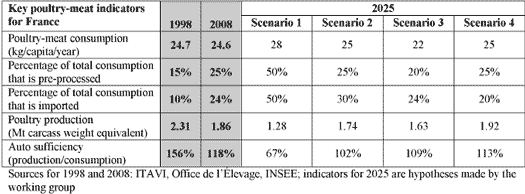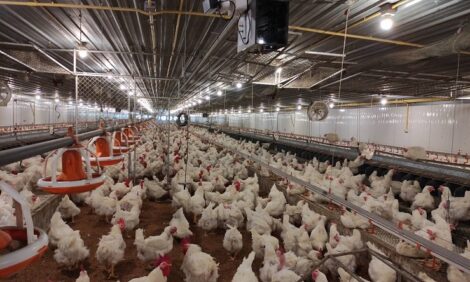



EPC 2010 - Plenary Sessions Look for Sustainability
FRANCE - The two plenary lectures at the European Poultry Conference (EPC) today touched on the future sustainability of the industry. Jackie Linden selects the highlights for ThePoultrySite.In addition to 13 sessions on a wide range of topics on the last day of the EPC in Tours, the common theme of the plenary lectures was sustainability of the industry, whilst approaching the topic from completely different directions.
Facilitating Sustainable Production in Developing Countries
"This is a subject very dear to my heart," said Dr Bob Pym in introduction to his presentation on facilitating sustainable and socially equitable poultry production in developing countries. Dr Pym is the current president of the World's Poultry Science Association (WPSA).
He explained that while the spectacular success of today's poultry industry today was initiated by increasing efficiencies in developed countries, most – but not all – have been taken up by developing countries, which now account for a greater proportion of global poultry meat and egg production than developed nations. However, per capita consumption of these products has not kept up with this overall increase in many poorer countries.
Societal concerns over aspects of production are no longer limited to developed countries, he said. They include disease (especially avian influenza; AI), food safety/quality, animal welfare, environmental impacts and loss of biodiversity.
Following a challenge issued to the poultry industry at the last World Poultry Conference by Dr John Hodges, the WPSA held a Poultry Think Tank last year to both identify the genuine and most pressing concerns and also to open communication with consumers, providing them with accurate information about the industry, spreading positive messages and debunking some common misconceptions. The Think Tank confirmed these concerns, adding for developing countries loss of employment opportunities, World Trade Organization free trade policies, differential national policies with respect to the control of AI and issue over intellectual property rights.
Having identified these areas of concern, the follow-up to the Poultry Think Tank will involve a wider range of stakeholders.
With its mission statement of 'feeding the world', the WPSA can play a significant role in facilitating sustainable and more socially acceptable poultry production in developing countries, said Dr Pym. Its Asia-Pacific Federation has already set up a working group on small scale production. Generally, there is increasing recognition of the needs of developing countries, and particularly urban and peri-urban dwellers, he said.
Furthermore, the development of a sub-Saharan poultry network has been proposed, whereby researchers, educators, industry and farmers are brought together through electronic communication.
Dr Pym concluded by expressing his commitment that the WPSA will in future play a bigger role in future sustainability projects, especially for developing countries.
Scenarios for Poultry Production in France in 2025
Over the last decade, EU poultry production has increased, largely as the result of the integration of the most recent member states but French output has fallen by around 20 per cent, explained Dr Pascale Magdelaine of the INRA institute in Tours. This has naturally raised concerns about the future of the industry from producers in France as well as public and private stakeholders in the industry.
To help design future strategies, the technical institute, ITAVI and INRA co-operated in an exercise to develop a range of scenarios.
Three main drivers identified by a panel of industry experts were:
- consumption and the development of new market segmentation towards more processed poultry meat products
- major uncertainties in public policies, and
- industry strategies, its concentration and competition from non-EU countries.
Based on these drivers, Dr Catherine Beaumont of ITAVI explained that four scenarios were developed:
- Scenario 1: industry becomes ever more globalised
- Scenario 2: the poultry industry acquires a more European dimension
- Scenario 3: the poultry sector is boosted by sustainable development
- Scenario 4: the poultry sector joins global food regulation
The assumptions of each of these scenarios and the effects on the industry are summarised in the table below.

Dr Beaumont stressed that none of these scenarios envisages strong growth of the industry by 2025 but they underline the importance of multidisciplinary research to characterise the quality and sustainability of production and, in turn to improve competitiveness of the French industry.
When asked about the likelihood of these scenarios, Dr Magdelaine said this was not clear and that the aim of the project was to review all possibilities. At the present time, scenarios 1 and 3 are more likely than 2 or 4, she said, but she stressed that unexpected events, such as the economic crisis and resulting political changes, would impact the final outcome.
Further Reading
| - | Go to our previous news item on this story by clicking here. |








